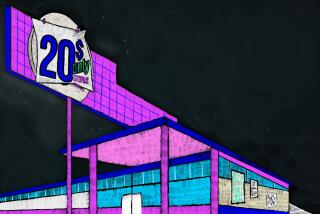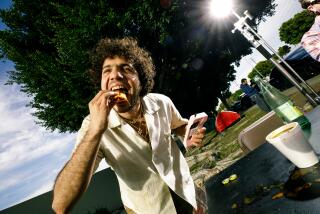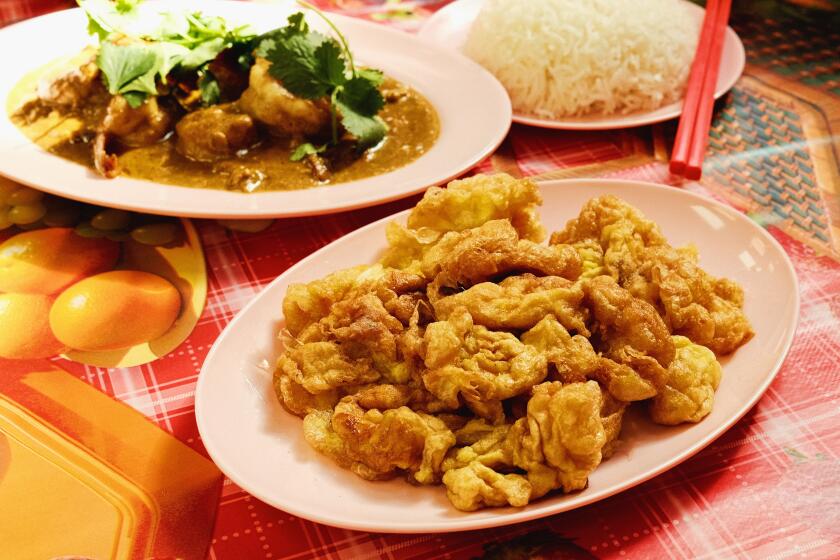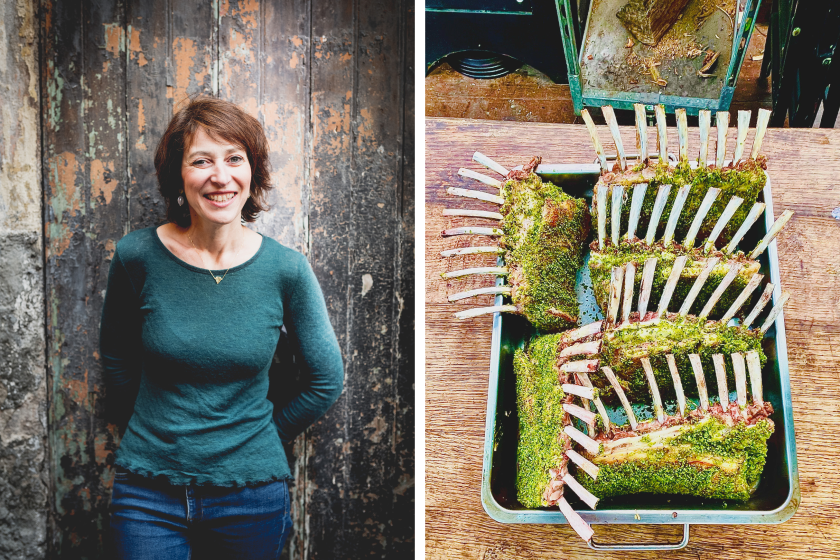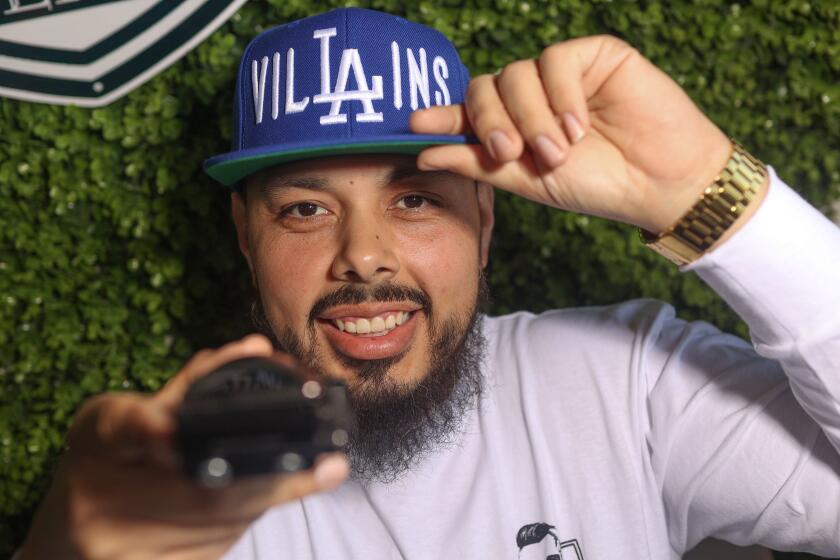Fung Chow Chan; Founded L.A.’s Phoenix Bakery
Fung Chow Chan, who founded a Chinatown landmark, Phoenix Bakery, and was a leader in launching two of the community’s most successful financial institutions, has died.
Chan died at Good Samaritan Hospital in Los Angeles on Jan. 29, three weeks after suffering a stroke. He was 91.
An immigrant from Canton, China, who made Los Angeles his home seven decades ago, Chan built a family-run bakery on the north end of Chinatown into a multimillion-dollar business known for its strawberry whipped-cream cakes.
He later played a leading role in the founding of Cathay Bank and East-West Federal Savings, two of the oldest Chinese American financial institutions in California. They became important tools of economic development for a minority community that often encountered discrimination at mainstream institutions.
Chan came to Los Angeles in 1933 to join his father, who had established a silk business here. Five years later, Chan and his wife, Wai Hing, opened a shop on North Broadway to sell Chinese pastries based on family recipes.
They were later joined in the business by Chan’s brother, Lun, who studied baking in Hong Kong and at Los Angeles Trade-Technical College. It was Lun who developed the Western-style cake that made Phoenix famous.
The white cake with a cream and fresh berry filling, introduced at Phoenix in the 1940s, was far from an instant success. But by the 1970s the bakery was drawing long lines of customers, selling as many as 1,000 of the confections each Saturday.
Its popularity spread by word of mouth beyond Chinatown, and the cake became a staple of office parties around Los Angeles and a favorite at team events of the Dodgers and the Lakers. Other bakeries copied it.
“That cake was popular because it was so good. You could always rely on the quality,” said Times food writer Barbara Hansen. “It is an L.A. classic.”
The success of Phoenix enabled Chan to buy a home in Silver Lake in the 1950s, when restrictive covenants barring Chinese immigrants from property ownership had disappeared. He was one of the first Asians to integrate the area.
But Chan, like other Chinatown entrepreneurs, still had difficulty securing business loans from mainstream banks. Although Chinatown was flourishing by 1960, it had no banks of its own.
“Even though he had this very successful business, he couldn’t get bank loans. That’s basically why he decided to start a bank,” said his son Kellogg, a Los Angeles businessman.
Chan and a group of investors initially tried to open a savings and loan, but gave up after several rejections by state regulators. When they decided to start a commercial bank instead, their charter was approved. In 1962, Cathay Bank opened, becoming the Southland’s first bank owned and operated primarily by Chinese Americans. With $2.2 billion in assets, it now has 21 branches from Los Angeles to New York, and offices in Hong Kong and Taipei.
Chan became Cathay’s first chairman, a role he filled until 1972, when he co-founded East-West Federal Savings, the first federally chartered thrift in the Chinese American community. It has become one of the nation’s fastest growing minority-run financial institutions, with branches across California.
Chan’s contributions to Chinatown were acknowledged in a recent exhibit at the Autry Museum of Western Heritage called “On Gold Mountain: A Chinese American Experience.” The exhibit, which is scheduled to open at the Smithsonian Institution in Washington, D.C., in May, includes a pastry tin from Phoenix and a photo of Chan.
His achievements were included in the exhibit because he built “a business of long standing [that] reached great success purely through hard work, eggs and flour,” said Autry guest curator Leslee Leong, who recalled Chan not only as an astute businessman but also as a scholar of Chinese classics.
During the 1960s he tried producing soy milk, and he was one of the first Chinese Americans to start a car dealership. In the 1980s he and a group of friends tried to sell a solar home energy system. But not all of his business ideas caught on.
“He was a man before his time,” said Betty Tom Chu, who counted Chan among her first clients in 1961 when she became one of the first Chinese American women to practice law in California.
“He was one of my very few male business clients. He did not observe racial and sexual preferences, which was amazing for his time,” Chu added. “There were very few men who respected women as equals, and he did that.”
Chan retired in 1976 but remained active, continuing to attend family business meetings until he suffered a stroke Jan. 5.
His philanthropies included Friends of the Chinatown Library, the Chinese-American Museum, the Southern California Chinese Historical Society and the Chinatown Public Safety Assn.
In addition to Kellogg and Lun, he is survived by sons Kelly and Kenneth; a daughter, Kathryn; a sister, Fung Chee Chan Fat; and eight grandchildren.
A memorial service will be held at 11 a.m. Saturday at Forest Lawn Hollywood Hills. Donations may be made to Friends of Chinatown Library, 536 W. College St., Los Angeles, CA 90012.
More to Read
Eat your way across L.A.
Get our weekly Tasting Notes newsletter for reviews, news and more.
You may occasionally receive promotional content from the Los Angeles Times.
